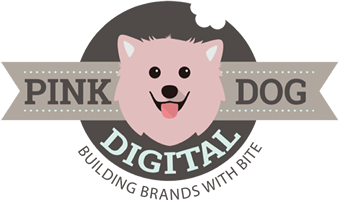Beyond Likes and Shares: Elevating Your Business with an Effective Social Media Marketing Strategy


In the social media world, likes, comments, and shares have become standard metrics of online interaction. And it’s easy for individuals and organizations alike to become obsessed with these numbers and point to them as evidence of their relevance in the social conversation.
However, organizations specifically need to look beyond these vanity metrics to realize the true potential of their social media marketing programs. It can be challenging, especially with the overwhelming amount of data available.
By following a clear, well-defined path, you can put your organization in the best possible place for social media marketing success. Let’s take a closer look at this path and how you can best measure the success of your social media marketing.
Defining Measurable Goals
First, it’s important to set and define goals for your program. However, you’ll need to move beyond vague aspirations such as “increased online presence” or “better engagement”. Your goals need to be clear and measurable.
In fact, like many other goal-setting activities, it’s best practice in social media marketing to focus on setting SMART goals for your efforts. SMART stands for Specific, Measurable, Achievable, Relevant, and Time-Bound – and taking this structured approach helps you get the most out of your program.
- Specificity ensures that goals are clearly defined, leaving no room for ambiguity.
- Measurability provides the yardstick for success, enabling data-driven decision-making.
- Achievability grounds aspirations in reality, ensuring that goals are challenging yet attainable.
- Relevance aligns goals with broader business objectives, ensuring that social media efforts contribute meaningfully to the overall success of the enterprise.
- Time-bound goals introduce urgency, fostering a sense of accountability and preventing the procrastination that can plague long-term objectives.
Choosing the Right Platforms
In the business world, not all social media platforms are created equal. It’s highly unlikely that you’ll find equal success on every social platform – chances are that you’ll find your target audience on one or two different platforms. You’ll want to focus your efforts on platforms where you’ll see a higher return on investment.
For example, if storytelling is a vital part of your brand narrative, visual platforms such as Instagram or TikTok make a lot of sense. On the other hand, if your business wants to focus on being a thought leader within your industry with long-form content, the professional atmosphere of LinkedIn makes more sense.
Tailoring Content for Each Platform
Once you’ve identified your organization’s ideal social platforms, the next step is to create and tailor content for those platforms. You’ll want to ensure that your content not just appeals to your target audience, but also fits in with other content on the platform.
For example, you wouldn’t plan out a long-form text content piece on a platform like Instagram! Instagram is all about visuals and authenticity, so you’ll want to use high-quality images as the basic unit of content here.
In contrast, the focus on LinkedIn is long-form, informative articles, so don’t go out and hire a photographer to make your LinkedIn content! While high-quality imagery can help your LinkedIn posts stand out, you should focus more on the written content if you want to find success.
How to Create Engagement and Interaction with Your Audience
Build a Community
Social media isn’t about broadcasting your brand messaging to your audience – it’s about creating a community around your brand. The best way to build a community, where your audience feels connected to your brand, is to interact with them. Actively respond to comments, messages, and mentions to foster a sense of connection between your brand and your target audience.
Showcase User-Made Content
Another great way to create engagement is to encourage and showcase content made by your community. It not only provides social proof but also taps into the creativity and enthusiasm of your audience. Some great examples of user-made content include testimonials and product/service reviews.
Create a Brand Narrative
A brand narrative is critically important in today’s social media. It creates a cohesive, memorable experience for your target audience. It’s the story of your brand’s journey, what it values, and the vision it has for the future. And when your audience feels as though they’re a part of your brand narrative, they become active participants in your story.
Analyzing Metrics for Continuous Improvement
Social media marketing is a data-driven endeavor. Success is not subjective – it’s measurable. Defining and analyzing your key performance indicators (KPIs) is critical for determining whether your social media marketing program is successful or not. These metrics provide insight into what’s working and what needs further refinement.
There’s so much data you can extrapolate from a social media marketing program that it can feel overwhelming. However, some of the most important metrics to pay attention to include:
- Reach: This measures how many people have seen your content. A high reach indicates a large total audience.
- Impressions: This is slightly different than your reach in that it measures how many times total your content has been seen.
- Conversion Rates: Whether it’s website visits, sign-ups, or sales, conversion rates provide a tangible measure of the financial impact of your social media efforts on your business.
A/B Testing Strategies
A/B testing allows you to make small changes to your content and see how it impacts your data. It is the cornerstone of a successful social media strategy. No matter whether it’s testing content formats, posting times, or images – A/B testing gives your team valuable data that you can carry over into future social campaigns.
Iterative refinement is not an admission of failure – it is a testament to adaptability. What works today might not work tomorrow, and A/B testing provides the means to stay ahead of evolving audience preferences.
Adapting to Trends and Algorithm Changes
It’s important to understand that things never stay static in the social media realm for very long. Social feed algorithms change and technology continues to advance at breakneck speed. Staying on top of these technical changes isn’t just a best practice – it’s a survival strategy.
In addition, you’ll want to keep a close eye on emerging trends in order to stay relevant through the years. Audience preferences are fickle, and this is exemplified through the rapid rise and fall of social media trends. If you can position your brand at the front of innovation, you’ll develop a reputation for being a trendsetter, rather than a follower. And being a trendsetter typically correlates to social media success.
Pink Dog Digital Can Help Your Organization Develop a Cohesive Social Media Strategy
Not sure where to start with your organization’s social media strategy? We can help! At Pink Dog Digital, we create an online experience that turns users into followers and followers into customers. We can create a customized strategy to meet your needs.
Some of our services include:
- Digital advertising
- Social media management
- Content creation
- Search engine optimization
- Web design
Contact us at 410-696-3305 or email us at pinkdogdigital@gmail.com for any inquiries or to book a service. You can also fill out our online Contact Us form or visit our website to learn more about us.

